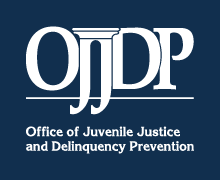Mentoring
Using Community-Based Participatory Research to Advance Transformative Credible Messenger Mentoring for Justice-Involved Youth of Color
Meeting People Where They Are to Improve Institutional Culture
Incarcerated individuals deserve opportunities for healing and growth, but they often lack the necessary resources for such opportunities. Additionally, organizational cultures that don’t support these outcomes often stand in the way. Researchers and practitioners gathered at NIJ’s 2023 National Research Conference to share ideas and projects that will increase opportunities for incarcerated populations around the country. This show continues their conversation.
Changing Prison Culture Reduces Violence
The Effectiveness of Prison Programming: A Review of the Research Literature Examining the Impact of Federal, State, and Local Inmate Programming on Post-Release Recidivism
Restoring Promise: A Randomized Control Trial Examining the Impact of an Innovative Young Adult Housing on Reducing Violence
Considering domestic violence victims: Exploring victim-related factors in prosecutor case summaries
It's a Marathon Not a Race: Exiting the Commercial Sex Trade
NIJ FY23 Youth Mentoring Research and Evaluation
A Leg Up: NIJ's Graduate Research Fellowship Program
NIJ Director Dr. Nancy La Vigne joins the show to interview Dr. Marie Garcia, Director of NIJ’s Criminal Justice Systems Division and a former NIJ graduate research fellow. They discuss the application process, Marie’s experience as a fellow while at Temple University, and advice for future applicants.
Reading and Resources from NIJ:
Group Mentoring Model
Mentoring for Enhancing Educational Attitudes, Beliefs, and Behaviors
The role of school‐based group mentoring in promoting resilience among vulnerable high school students
Gender-Based Violence and the Latinx Community
See the YouTube Terms of Service and Google Privacy Policy
Economic Justice for Survivors of Intimate Partner Violence
See the YouTube Terms of Service and Google Privacy Policy
Desistance from Crime: Interventions to Help Promote Desistance and Reduce Recidivism
No single criminal justice agency can promote desistance on its own. Partnerships across state, local, and federal agencies — along with the support of family and community stakeholders — are instrumental in supporting desistance from crime and reducing recidivism.
Law enforcement, courts, corrections, and community supervision agencies play a key role in the desistance process and reducing recidivism.
See the YouTube Terms of Service and Google Privacy Policy
How Do “Credible Messenger” Mentors Promote Youth Development? A Retrospective, Longitudinal Study in Atlanta, Birmingham, and Houston
Positioning Mentors as Social Capital Builders
Exploring mentor practices using data from OJJDP’s Mentoring Enhancement Demonstration Program
Effects of School Resource Officers on School Crime and Responses to School Crime
The Role of Bullying-related Policies: Understanding How School Staff Respond to Bullying Situations
Learning from Doing Evaluating the Effectiveness of the Second Chance Act Grant Program
Reauthorized in 2018, the Second Chance Act (SCA) aims to reduce recidivism and improve outcomes for people returning from state and federal prisons, local jails, and juvenile facilities through the provision of federal grants. During this panel, National Institute of Justice-funded researchers will detail two ongoing evaluations of the SCA grant program:
- An evaluation of the effectiveness of the SCA grant program per Title V of the First Step Act.
- A longitudinal examination of the long-term impacts of the SCA program.
See the YouTube Terms of Service and Google Privacy Policy
The Hidden Costs of Reentry: Understanding the Barriers to Removing a Criminal Record
NIJ hosted a webinar to discuss under-researched aspects of reentry: expungement of criminal records and the impact of those records. This webinar includes a presentation of ongoing research projects examining the impact of legal aid for expungement and past research projects studying the accuracy and permanency of criminal records and the prevalence of collateral consequences of conviction. A Q&A session will conclude this webinar.
See the YouTube Terms of Service and Google Privacy Policy






